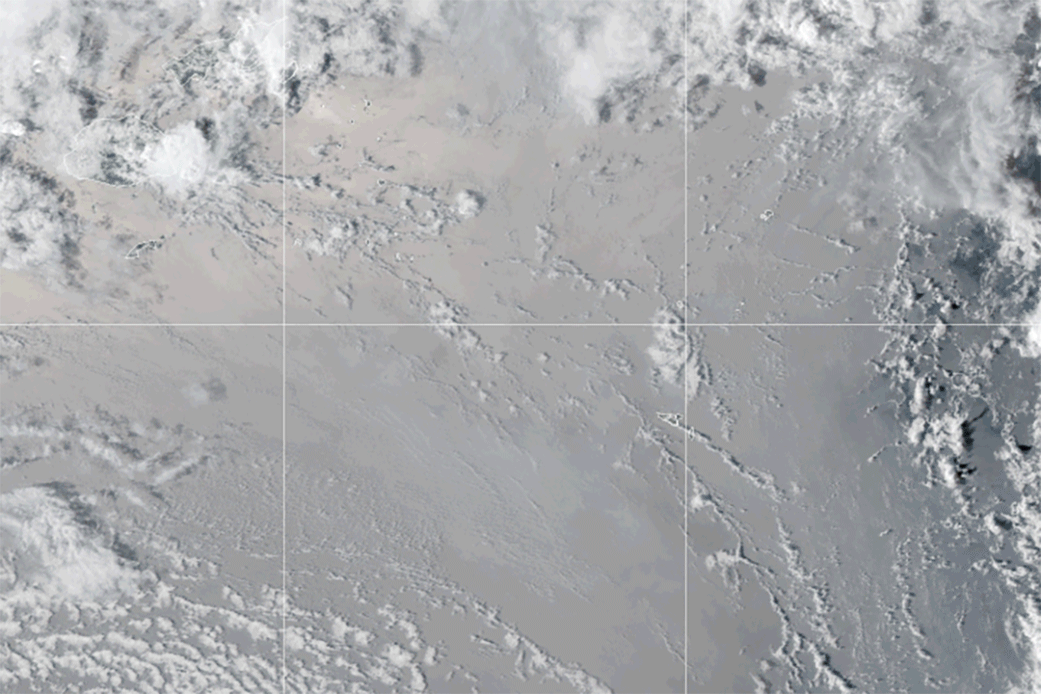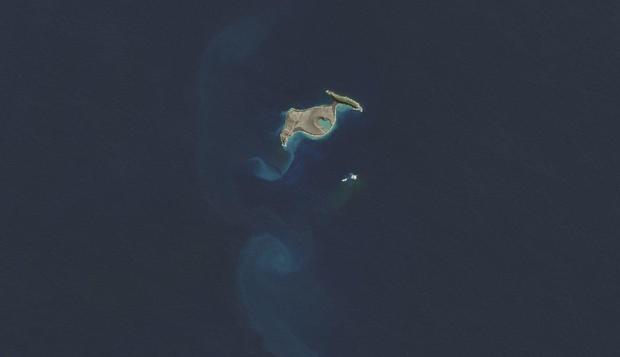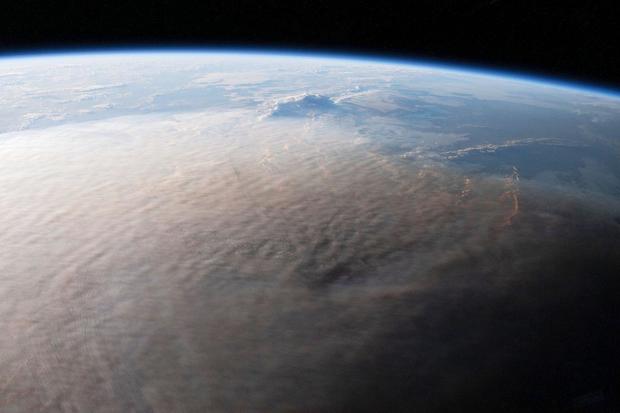Tonga devastated by volcanoes and tsunamis
Hunga, Tonga Tonga-Hunga Ha'apai volcano erupted violentlyearlier this year, releasing unprecedented amounts of water vapor into the atmosphere. It can have a noticeable effect on global temperature.
An eruption near the Pacific island nations on January 15 caused a tsunami and a sonic boom that circled the globe twice, causing local governments to declare "an unprecedented disaster.} "
Not only did it send ash into the stratosphere,NASA said that scientists It said it had broken "every record" for steam injection since it began recording such data.
Images from drones, flights and even the International Space Station have captured the staggering scale of the explosion.

By Joshua Stevens using his GOES images provided by NOAA and NESDIS His sounder device on the microwave rim on NASA's Aura satellite. The blast measured atmospheric gases and was found to have carried about 146 teragrams of water into the stratosphere, about 8 to 33 miles above the surface. One teragram is one trillion grams. and its extreme amount increased the total amount of water in the stratosphere by about 10%.
This is almost four times the amount of water vapor estimated to flow into the stratosphere from the 1991 eruption of Mount Pinatubo in the Philippines. Scientists say that the unprecedented volcanic plume that reduced the power of theHiroshima atomic bomb could temporarily affect the global average temperature of the Earth.
"I've never seen anything like it," said Luis Millan, an atmospheric scientist at NASA's Jet Propulsion Laboratory. . His team said the water vapor readings were "off the charts."

to be reliable. We took plume measurements to confirm," he said.
Only two of his eruptions, his 2008 Casatochi eruption in Alaska and the 2015 Calbuco eruption in Chile, have been recorded since NASA began measuring 18 years before him. It released a considerable amount of water vapor at such a high altitude. Both dissipate quickly, and neither event compares to the vast amounts of water released by the Tonga event.
A powerful volcanic eruption will result. Because volcanic ash reflects sunlight, it usually cools the Earth's surface. But theTonga eruption is in stark contrast because the water vapor released can trap heat.
This "may be the first volcanic eruption to observe climate effects from surface warming rather than surface cooling from volcanic sulfate aerosols," researchers said. .

Experts believe that this water vapor could remain in the stratosphere for years, temporarily exacerbating ozone depletion and increasing surface temperatures. said to have the potential to The water can remain for decades, but has no lasting effects.
"This effect disappears as excess water vapor circulates out of the stratosphere, reducing the effects of climate change."
Experts attributed the record-breaking eruption to a basin-type depression about 490 feet deep on the ocean floor. Point out the caldera of the volcano. If the caldera was shallow, the sea water was not hot enough to explain the water vapor readings, and if it was deeper, the intense pressure might have dampened the blast. } More
- Tonga
- Volcanoes
- NASA

Sophie Lewis is a social media producer and trending writer for CBS News, focusing on space and climate change.
Thank you for visiting CBS NEWS.
Create a free account or
log in for more features.


